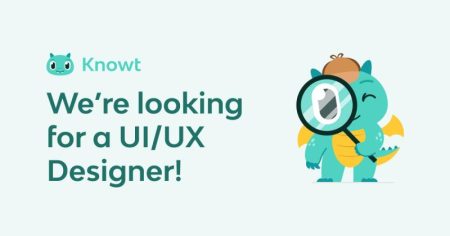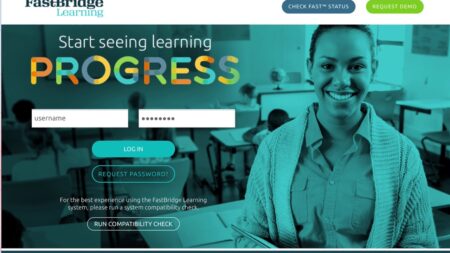Who doesn’t dream of a career in software development, right? Your job will be highly unlikely to go obsolete. You probably won’t lack job offers, either. Plus, you’d have great compensation for it, too. What’s not to like?
But first, you need to acquire the right skills to build a career in this industry. You need to master the right programming languages, development tools, and more. The moment you google what it takes to become a software developer, your head may easily go spinning from all the requirements.
Yes, it’ll take you time to turn yourself into a solid junior developer candidate. So, if you’ll have to juggle your learning with anything else, figure out your priorities early on. Outsource your homework to Writepaper.com if you’re a student, or cut down your working hours if you can. And then, use this guide to get started in software development.
Settle on Who You Want to Become
Let’s be clear: “software developer” isn’t a uniform job title. Companies don’t look for software developers, per se. They’re looking for Java developers, mobile app developers, or web developers.
So, before you dedicate your evenings to learning a programming language, you better be sure it’s useful for the field you want to work in. How can you know that? First, take a look at this list of the most popular software development fields and the usual tech skills required in each of them:
- Mobile app development: Kotlin, Java (Android); Swift, Objective-C (iOS);
- Web development: HTML, CSS, JavaScript (front-end); JavaScript, Python, PHP, Java (back-end);
- Video game development: C++, C#, Lua, Java, Python;
- Desktop app development: C#, C++, Python, Java, Swift;
- Big Data: Python, R, Scala;
- Cloud computing: Java, PHP, Ruby, Python, JavaScript;
- Data science: Python, JavaScript, Java, R, SQL.
And how do you know if this or that field of programming is your cup of tea? Go ahead and try learning basics using free resources online! If it hooks you, it’s worth pursuing. If you hate coding in this or that language from the get-go, it’s better to forget about it.
Understand What You Need to Learn
Now, it’s time to come up with a plan for your learning path. Don’t worry; it doesn’t have to be a final one: you can tweak it later on. Yet, if you’re serious about becoming a developer, you can’t go in blind.
First, you’ll need to add field-specific programming languages, libraries, frameworks, and IDEs to your list. But don’t consider it done once you’re finished with that part. Being a developer also means possessing these universal skills:
- Working with Git repositories;
- Searching for solutions to problems online;
- Reading and creating documentation;
- Collaborating with other developers and team members;
- Working with the client’s requirements;
- Writing clean code;
- Working according to various methodologies (Agile, Kanban, Waterfall, XP, Scrum, etc.)
- Testing and deploying your code.
Try Free Resources First
Let’s be clear: you can’t learn everything you’ll need to know using only free resources. That said, if you choose your resources right, you can learn all the basics required for an entry-level position even from home.
Don’t know which resources are the “right” ones? Here are four free learning platforms you should take a look around:
- FreeCodeCamp;
- Codecademy;
- Code Conquest;
- W3Schools.
Plus, starting with free resources will either cement your confidence that it’s your cup of tea or help you realize it’s not. And in case it’s the latter, at least it won’t cost you thousands of dollars to come to this conclusion!
Sign Up for a Bootcamp
At some point, you’ll realize you’re in a slump. You’ve learned everything you could have on FreeCodeCamp or Codecademy. There’s nothing left to study, it seems, but you’re still not ready for a junior developer job.
In this case, enrolling in a bootcamp is a good idea. Bootcamps are professional training programs that are less expensive and shorter compared to earning a degree in computer science. Plus, they’re taught by practitioners in their respective fields. And most bootcamps also help you kickstart your career by working on your resume and portfolio.
How do you choose a bootcamp that’s good for you, though? Here are a few suggestions:
- Choose the format (online/in-person) and pace (full-time, part-time, self-paced);
- Consider how much you’re ready to pay for it (and whether you can find other financing options, like a grant or a loan);
- Don’t overlook the career services. Ideally, they should include not just resume-writing workshops but also access to internships and job placements;
- Find out about the real learner experience. Go to review platforms and read former students’ feedback there.
Put Practice Over Everything Else
Whether you learn on your own or attend a bootcamp, there’s one rule you have to turn into the cornerstone of your journey. That rule is “practice” – no matter what field of development you’ve chosen for yourself.
Even if you watch hundreds of videos on coding, you won’t ever become a developer without spending hours writing code, tinkering with it, and troubleshooting it.
But how do you find real-world tasks for polishing off your coding skills? Here are X ideas for you:
- Participate in coding challenges;
- Contribute to open-source projects;
- Offer your services pro bono to nonprofits;
- Use coding prompts and real-world interview question examples.
Create a Knockout Portfolio
You can’t break into the software development industry without a strong portfolio. Whether you’re a web developer or a mobile app one, your portfolio is the way to get your foot in the potential employer’s door.
How do you go about making your portfolio into a knockout one? Here are four tips for doing just that:
- Create a professional website to host your portfolio or upload your projects to GitHub;
- Remember to add the “About Me” and “Contacts” sections;
- Add 4-10 of your best projects; they should be recent and up-to-date;
- Fill your portfolio with personal side projects, pro bono or open-source work, etc
In Conclusion
The path to becoming a developer is a tough and treacherous one. But if you persist and work hard, it’s not impossible to successfully reach the finish line and land your first job as a developer. Just remember: don’t give up, practice, and work on your portfolio!



